More than Monopoly
Exploding islands, medieval dynasties and cutesy woodland folk – a foray into board games beyond Monopoly.
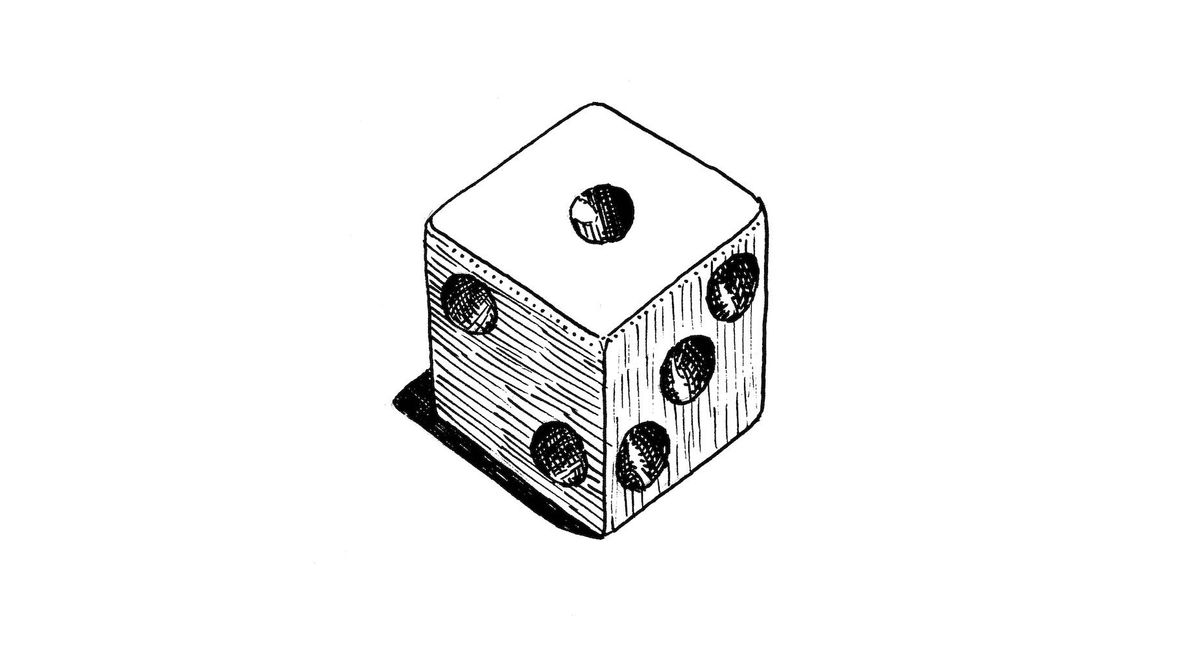
I was recently at Wellycon, a board game convention where families and friends can investigate what seems a near-infinite number of board games. The main event space was an old hall with a stage, with shelves of a complete rainbow selection of games stacked higher than I could reach, and other rooms you could branch off into. Shelf labels classified games by playing time, number of players, game theme, and age appropriateness. It was like being at a busy market, with people jostling to and from the shelves, then sitting down in tight-knit groups and unpacking components, leaning over boards, or poring over a rule book.
I was there with my son, an old friend of mine, Dean, and his son. We sat down to play a game called Camel Up, where you have to race camels against each other, and bet on the winner as the game unfolds. Dean knew the game, so it was a little easier to start, since he could explain the rules and walk us through it.
The family next to us was playing Monopoly, which made me laugh. They’d purchased tickets to this board game extravaganza, looked at everything on offer, and selected the one game likely to be in nearly every game cupboard in the world. It did make sense in some ways. Some of these games were complex, and if you hadn’t played before, it could take time to work it all out from the rule book. And there was so much choice it was a little overwhelming.
I didn’t blame this family for staying well within their comfort zone. It just seemed a shame. Perhaps they were really passionate about Monopoly. Or they’d taken the words “board game” from the convention material and just assumed it would be a gathering of people playing Scrabble, Risk, Monopoly, Connect 4 and Battleships.
It’s fair to say that many of the games featured at Wellycon once would have been completely foreign to people. Many originated in Germany or Europe, which is why collectively they’re sometimes called “Eurogames”. But this is changing: shops like Whitcoulls now stock a pretty good selection of the most popular Eurogames. Plus, since we’re confined to our homes a fair bit lately, board games are a pretty decent housebound activity option.
Eurogames rely less on chance and dice rolls, and more on managing resources, strategically placing people or characters, collecting items, and meeting a range of conditions to maximise your points. When designed well, they’ll allow people the chance to catch up if they’ve fallen behind.
The most well known Eurogame, the gateway game from some of the more classic boardgames, is Settlers of Catan. If you’re trying to cajole someone (maybe at Wellycon) to play a chunky-looking Eurogame, and they say, “I’ve played Settlers of Catan”, then you may have a chance, instead of just having to play Monopoly.
It’s true that Eurogames can be a bit taxing at first – there can be much to learn. And it can be hard to get people past their perceptions of games that seems a bit alien (if they haven’t at least played Catan…), complex, long, time-consuming, and – I say this with affection — nerdy. Years ago, when I was working as a high-school teacher, I invited some other teachers around for dinner and board games. We played Citadels, a relatively simple deception/bluffing game with some buildings and gold thrown in. We got through the game, but as they were leaving, one said: “Maybe let’s just play Scrabble next time.”
It’s hard to pitch a game to people that haven’t played it before. The familiarity of the games is what tends to make people comfortable with them – they’ve seen the box, the components, the pieces before. But consider these pitches for the classics, without that context:
- Battleships: “You hide your ships and the other person has to find your ships by firing blindly into the ocean”
- Connect Four: “You have to line up four coloured tokens to win”
- Monopoly: “Walk around the block buying buildings and renting them out”
- Scrabble: “Spell words for points”
If it’s hard to pitch the classics, it’s even harder to pitch Eurogames off the cuff. The proposition of the game can sound hopelessly dull. Agricola is a great game, but I’m not sure that I’ve sold anyone by merely saying, “You’re a 15th century farmer and you need to build a farm to feed your family.”
So here, hopefully, I’m going to offer some pitches (and reviews) ever so slightly better than the above. If you’re looking for something new to play beyond Monopoly (and perhaps, too, if you’re not), read on.
Game pitches
Agricola
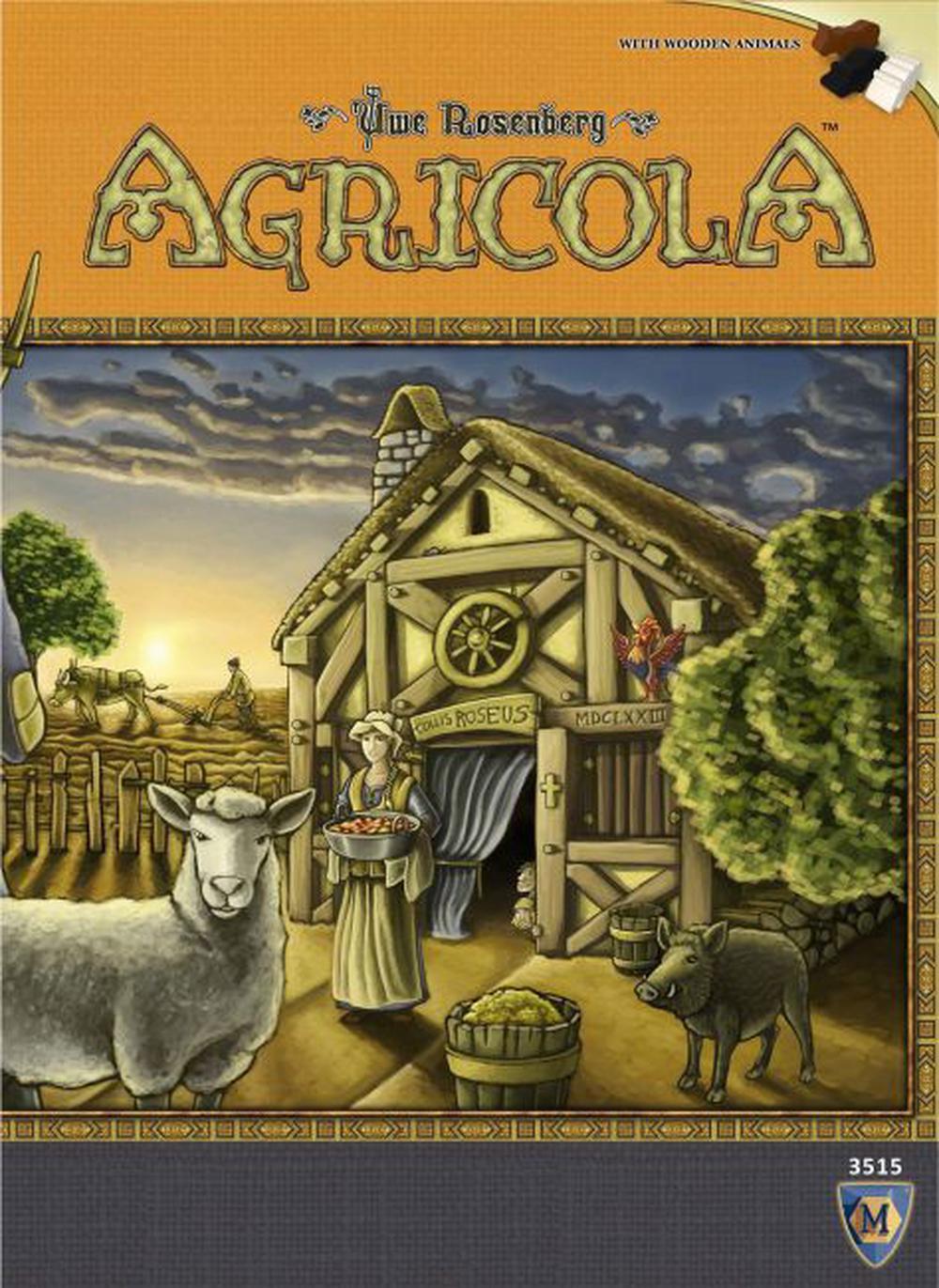
If you’re a planner and an organiser, someone who likes taking a bit of a beautiful mess and organising it just so, so everything falls into place just in time, this is the game for you. If the mere reading of such a sentence stresses you out, then this game will too.
You start with an empty farm, staring at a huge pile of resources: wood, clay, stone, ovens, grains, vegetables, sheep, cattle, etc. Each round you have a set number of turns, based on the number of people you have, to collect resources to build a sustainable farm system: fences to keep in the livestock, extensions to house more people so you can have more turns (but whom you’ll now have to feed), ovens to bake the grain (which you also have to plow fields to grow) into bread. You can get different “occupations” for your people to make them more efficient, like a baker who’s “good at bread”. At the end of each round there’s a harvest where you can reap the rewards of the farm you’ve designed to feed your people – or realise, miserably, that you’re not a very good farmer.
It’s an engrossing, challenging game once you get the hang of it. But: It’s also one of the more stressful games out there. Often your plan relies on picking up some specific resources in the right order: as long as you can get that pile of wood this turn, next turn you can build the fences you need to house the right amount of livestock so that your family can eat. But the resources are competitive: once they are claimed by one person, they’re gone until the next round. And you can guarantee if you really need something, the person just before you will nab it. It pays not to let your desperation (or strategy) show.
“But you don’t even need the wood!” you’ll exclaim, as someone pounces on it. “I need that wood.”
“Oh, yes, I know,” they’ll say, with a nasty grin. “But I might add an extension to my hut next round, so it’ll be good to have.”
Upshot: A deeply strategic game that’s new every time. Immensely satisfying when it goes well; argument-inducingly frustrating when it doesn’t.
Wingspan
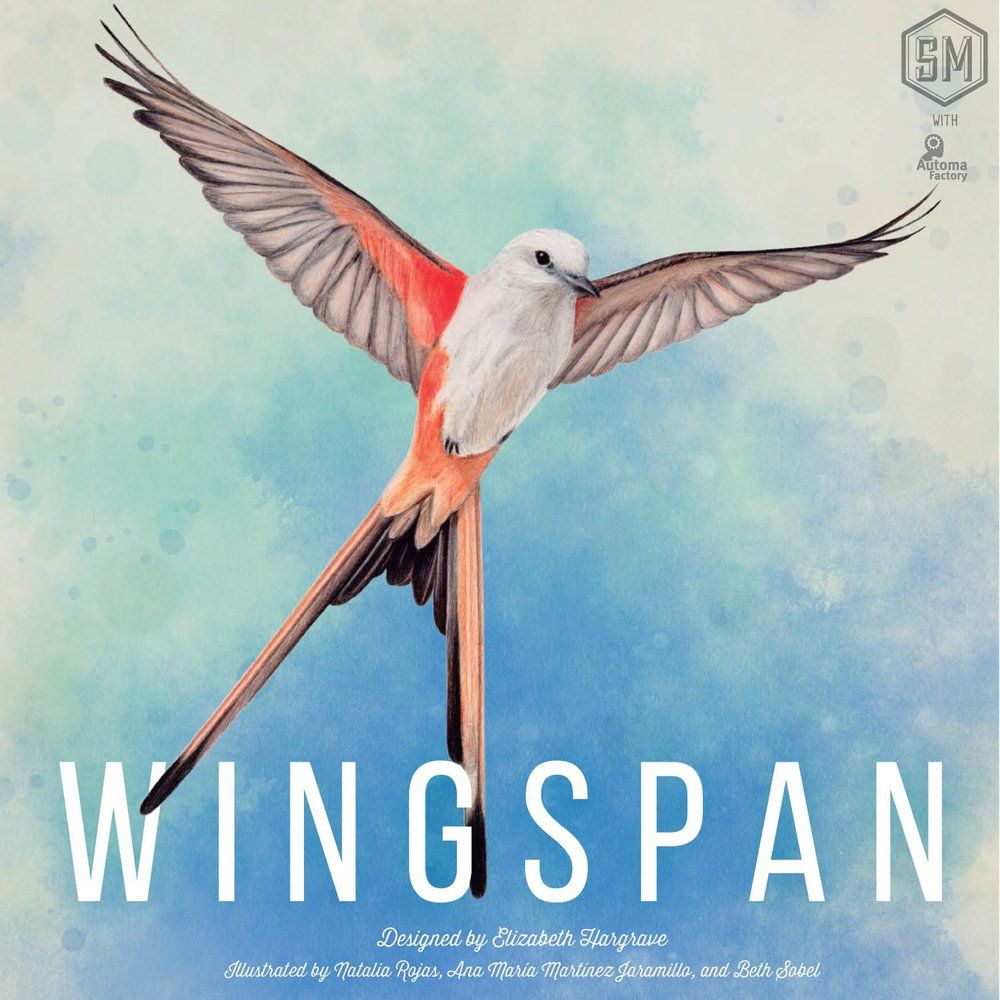
This game is so beautiful it’s worth it just for the illustrations. You’ll find it hard to keep your hands off the cards of birds of the world, the pastel-coloured miniature eggs, or the build-your-own bird feeder, which acts as a nifty dice roller.
You don’t have to be an ornithologist to love this game, although I’m sure it’s in every ornithologist’s game collection by now. Each person gets a custom “notebook” board, where they lay out various bird cards they collect over the course of the game. The aim of the game is to accrue the most points by the end, and that’s where the game is cleverest, but also most complicated: there are many ways to get points, but a successful strategy relies on investing in multiple points schemes, rather than betting it all on one.
Each bird has a different point value; the more points a bird is worth the more time and resources you’ll need to invest to collect that bird. You gain points for collecting eggs, but you also need to spend eggs – and, critically, gather food – to add birds to your collection. There are collective goals per round, which you compete to gain points against, like “Most birds with eggs in bowl-style nests” or “Total number of birds facing left”, and you also each have secret goals that you’re working towards, hoping for a big payout at the end, like “Birds with colours in their name”. This can lead to quaint game banter, like: “That bird there, what way would you say its beak is pointing?” Our family has a house rule where you can get bonus food for birds with moderately rude names, like the bushtit or dickcissel.
Upshot: Beautiful to look at and play with – some of the best cards and components you’ll find in a game. Piques the interest of most who see it. Simple enough to play as a family, but also has enough strategic trickery to captivate more experienced gamers.
Everdell
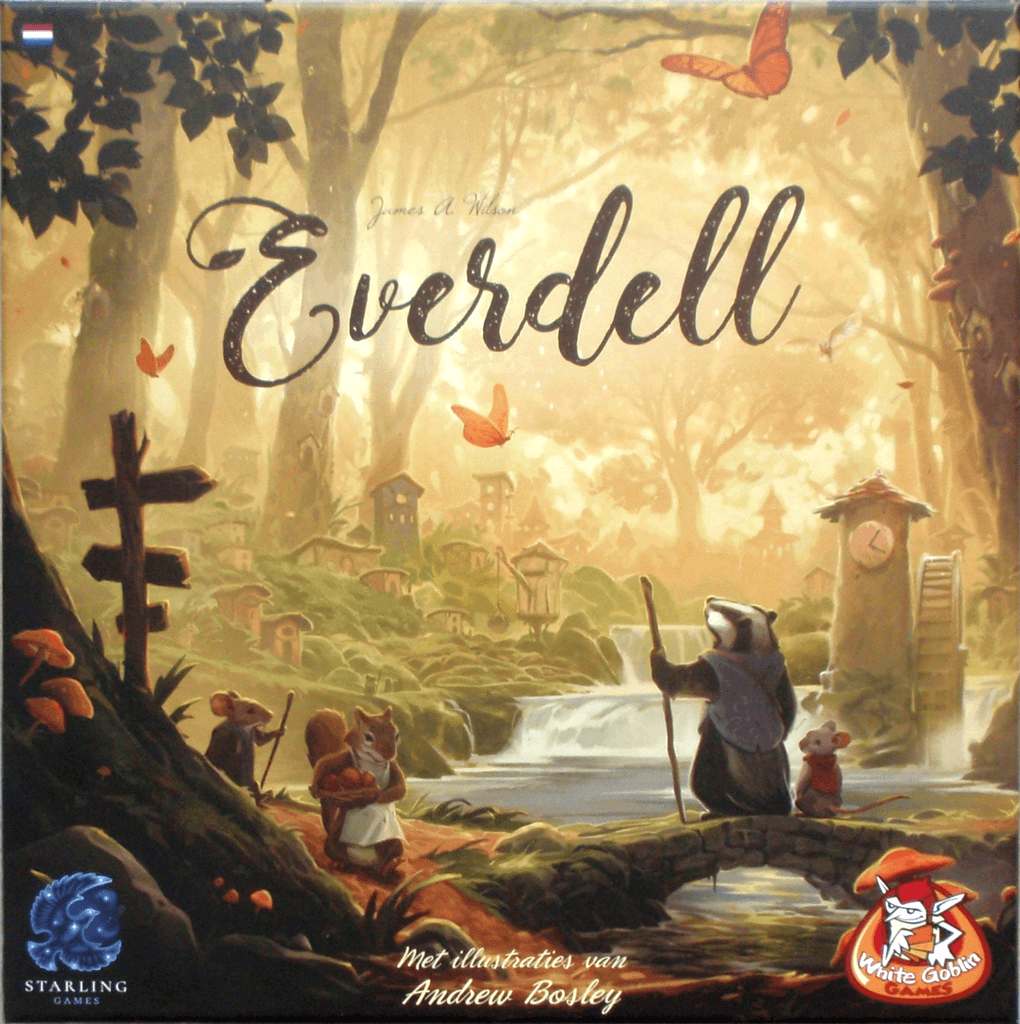
Everdell evokes strong vibes of Wind in the Willows or Sylvanian Families, and plays like a cross between Wingspan and Agricola. If you really get lost with the game, you can just pretend you’re a kid and play with the pieces like they’re toys.
Throughout the game you’re tasked with assembling your own collection of forest “constructions” and “critters” – both represented by gorgeous, illustrated cards of buildings built into trees and anthropomorphised forest folk.
The game board features a 3D cardboard big tree in the middle, with multiple levels: the “evertree”. Like Agricola, you have to place your workers to grab resources for your buildings and food for your critters, but it’s less competitive than Agricola. Once you run out of workers you can “end season” and get extra workers for the following season. Unlike Agricola, which gets tighter and tighter as you progress (more people needing more food and fewer resources), Everdell gets a little easier as you go, since as the seasons progress you get more workers to do all the things.
It’s not entirely lightweight though. There is definitely strategy in assembling the right combinations of constructions and critters; these can give you point or resource bonuses – and if you play it right your resources will just start to pile up, and you won’t need to forage about for them anymore (perhaps somewhat like getting a time machine and buying New Zealand property a generation or two ago). You’ll hear things like: “I no longer have to worry about gathering amber” or “I am so jealous of your huge pile of stone”.
Upshot: Great family option. An immaculately themed game, and mostly quite relaxed. Might be a bit light on deep strategy for more experienced (hardened?) gamers, but plenty of fun nonetheless.
Root
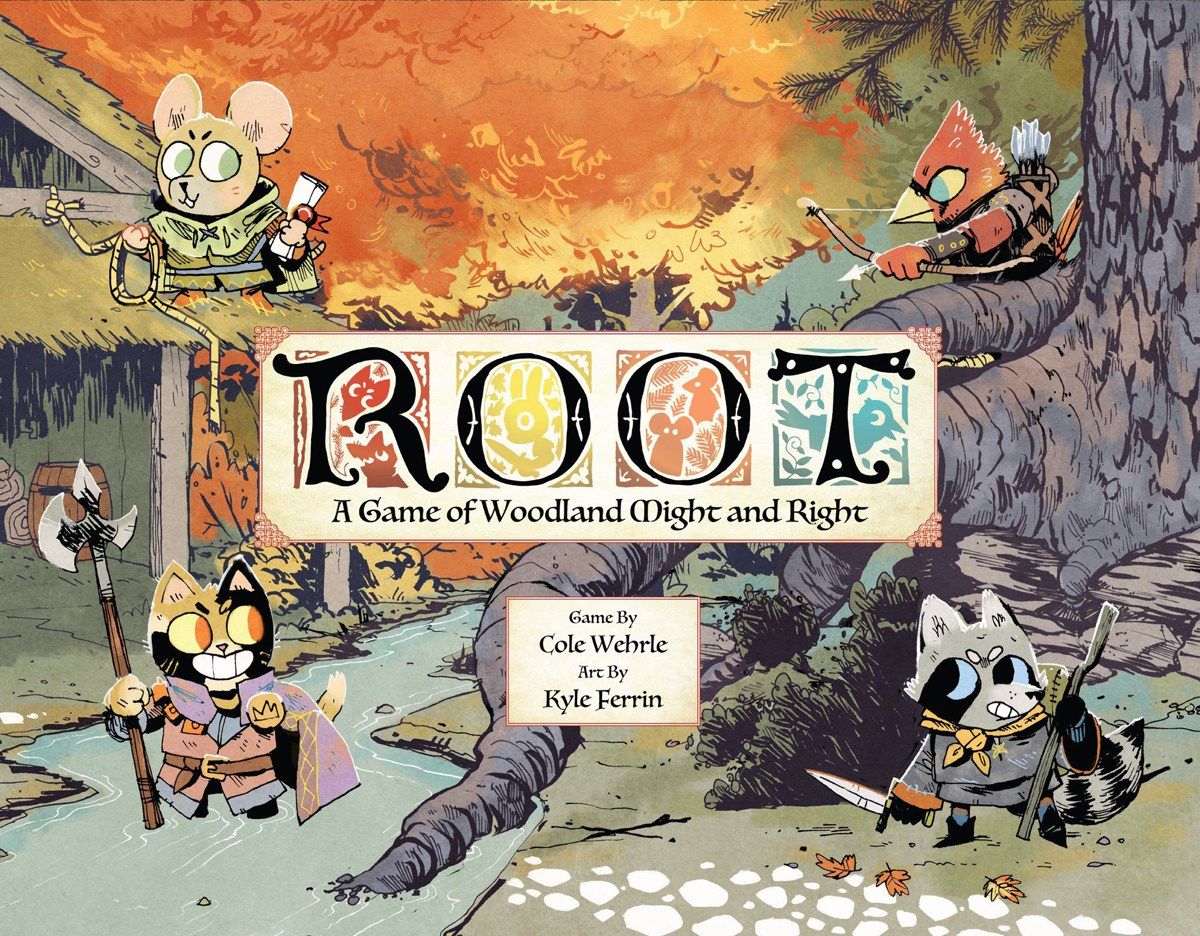
This is the greatest game that I’ve never convinced anyone to play. It could be a great game, I’m sure of it. It’s set in a forest (you see a theme emerges, across these games), where four factions of animals compete for control. The artwork is stunning and the wooden pieces are adorable.
The trouble is, it’s hard to learn to play, initially, largely because it’s what’s called an “asymmetric” game; each of the four factions plays the game completely differently, so in some ways it’s really four games which intersect on the game board. Every time I go to entice someone to play, I have to watch the full Youtube tutorial to get my head around it. If I was to unpack it right now, I’d probably struggle to remember all the ins and outs.
I played it once, with Vic and Neko, who got impatient because my explanation took too long, and because I didn’t really know the game well enough myself. We didn’t quite finish, and they didn’t really care.
Upshot: So much potential. We may never know. Someone please play this game with me one day. I’ve heard it’s good! Yet: It may be time to admit the learning curve is too steep for most.
Dominion
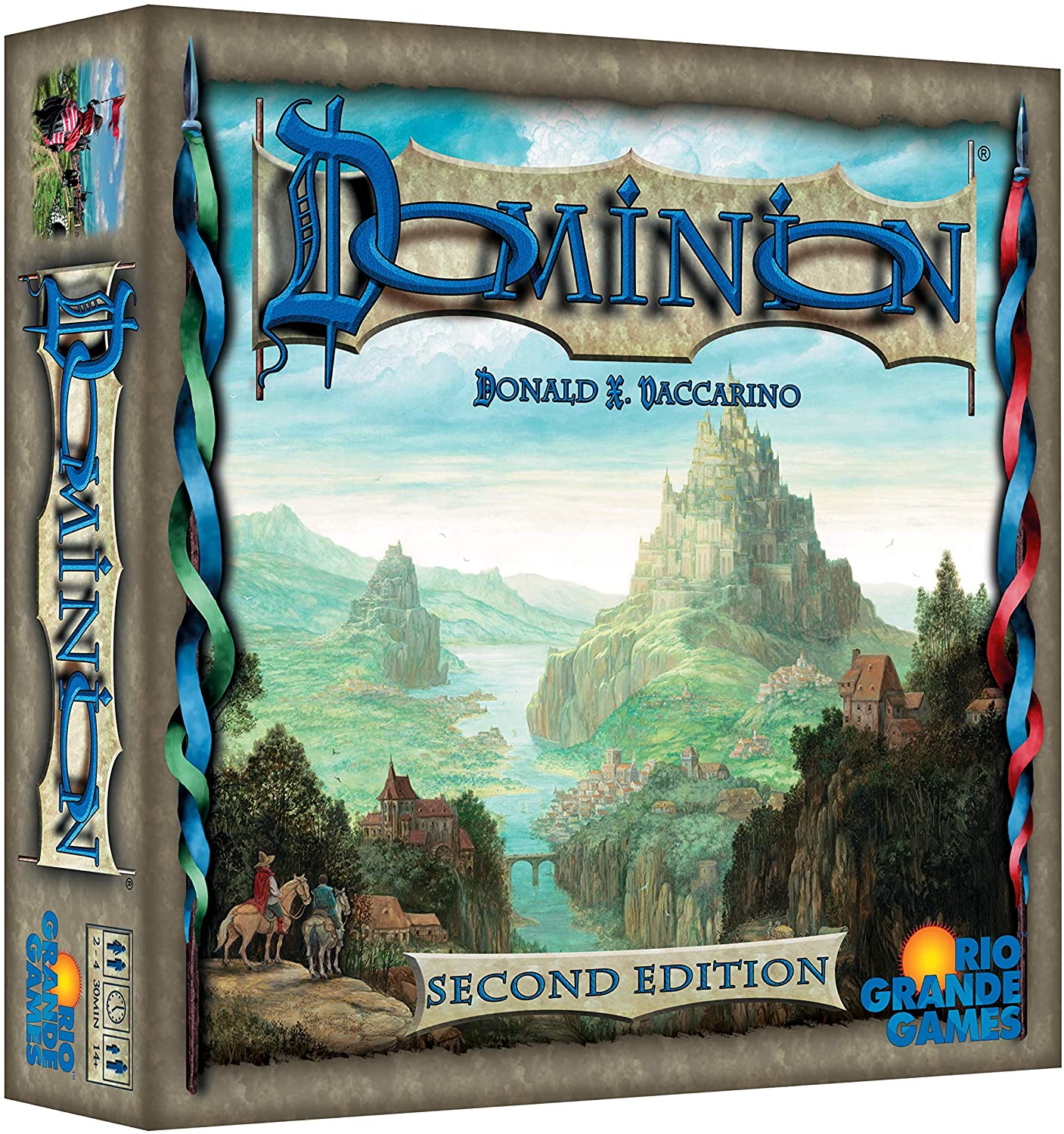
Dominion isn’t so much a board game as a medieval-themed “deckbuilding” game, where you start with a tiny deck of ten cards, and choose cards to add to it over time. Do it right, and every turn you’ll draw great cards that allow you to buy more and do more; do it wrong, and you’ll draw clunky cards that get you nowhere.
The aim is to accrue land, in the form of estates, duchies, or provinces. The more expensive the property, the more points it gives you at the end of the game. But here’s the thing: land is another kind of card that goes into your deck, and is useless until the end of the game. You want to time your land purchases well to avoid deadweight in the early and middle stages, and ideally only buy the most high-value land.
You start with a little money (copper), but you can – and this is a little strange, at first – use that money to buy money of a higher currency (eg silver or gold), which makes your purchases more efficient in the future.
The crux of the game is the action cards, which allow you to do more with your turn than just buy stuff, for example draw extra cards, or do even more actions. It can be exciting to create chain reactions of action cards which enable drawing massive hands or huge purchases. There are also “attack” actions, if you want to go down that road, which skew the game from a race to points to a mission to knock everyone else back.
Dominion is a real dynasty of a game – there are numerous expansions, and because you only choose ten action cards to drive the game (out of a larger selection), every game has the potential to be entirely different.
Upshot: An endlessly flexible game. The game-design element – being able to choose the actions – gives this game excellent repeat value. It can take a while to get used to the money and land mechanics, for new players.
Survive: Escape from Atlantis!
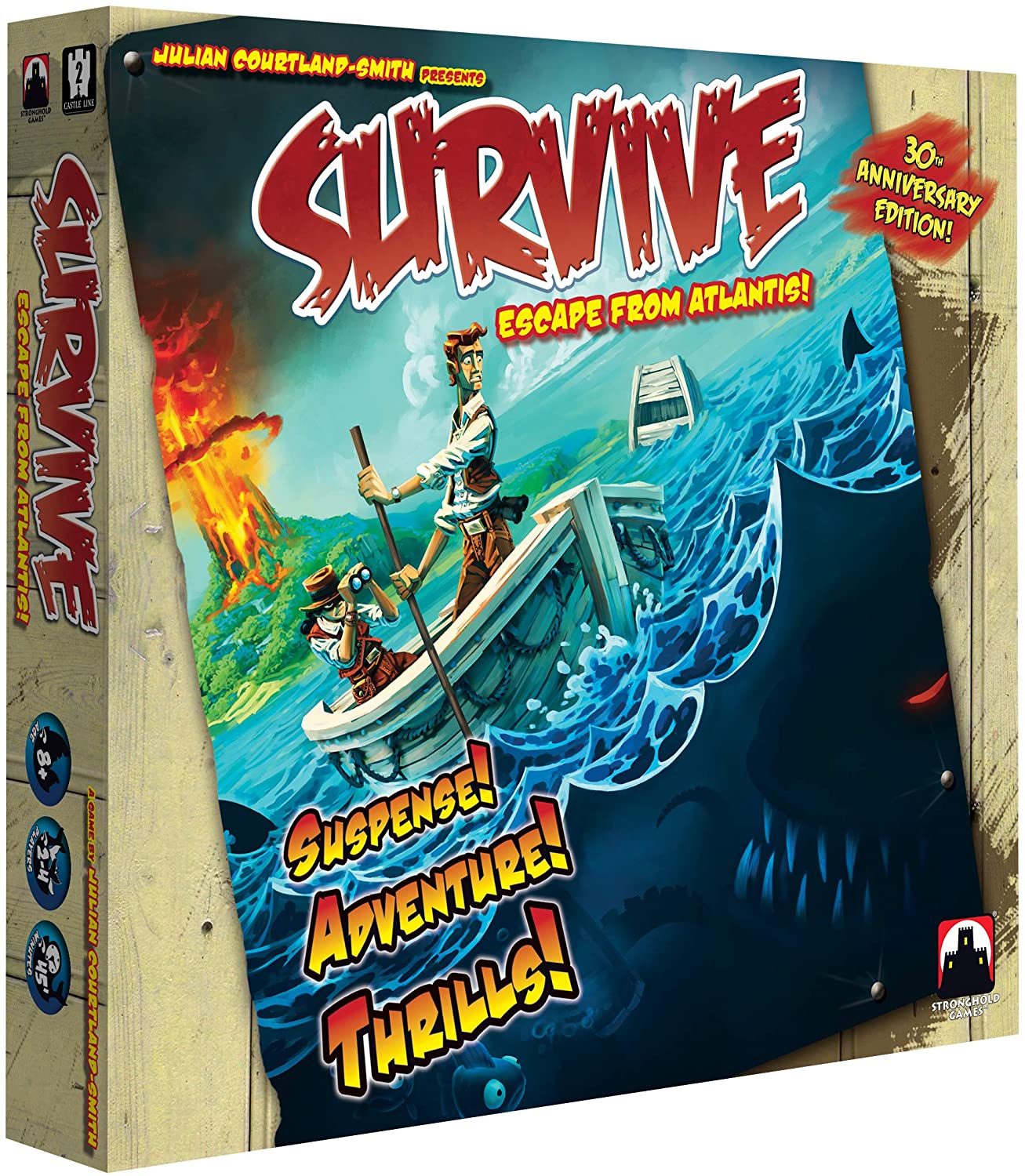
The premise is simple enough: Your people are stuck on a tiny island, the island is erupting, and you need to get them to safety. Pieces of the island crumble away each turn, and if one of your people is on that piece of land, they’re in the drink – not dead, but swimming, and now in more danger.
The objective is to get your people to the dry land at any of the four corners of the board. Each of your people are worth different levels of points, printed on the bottom (from 6 points down to 1). No one else but you knows whether the person who just got eaten by a shark is a 6-pointer or a 1-pointer. They only have your reaction to go by. This is one tricky aspect of the game – you’re not supposed to look at these values once the game starts, but just remember which is which. This makes it, in part, a game of memory. You will 100% forget some of them, and lose a 6 when you thought it was an easy tradeoff for a 1.
You can swim to escape, but it’s slow and you’ll probably die. Boats are faster, and can carry more people. More than one player can pile their pieces into a boat, so you might find one of your pieces sailing into the distance controlled by another player, and can only hope that they, too, have your interests at heart.
As more of the island crumbles, more hazards appear. Sharks pluck people from the water, whales capsize boats, sea monsters wreck boats and people, and whirlpools destroy everything nearby. It’s a dangerous journey. You can make it more dangerous for your opponents by placing hazards in their path, but sometimes you’re literally in the same boat and need to collaborate.
Upshot: Pretty light on strategy, but big on surprises which will both delight (someone else gets eaten) or sadden (one of your own gets eaten). It can be a bit frustrating trying to remember the point values of your people; for an easier version you can let people check over the course of the game.
Dixit
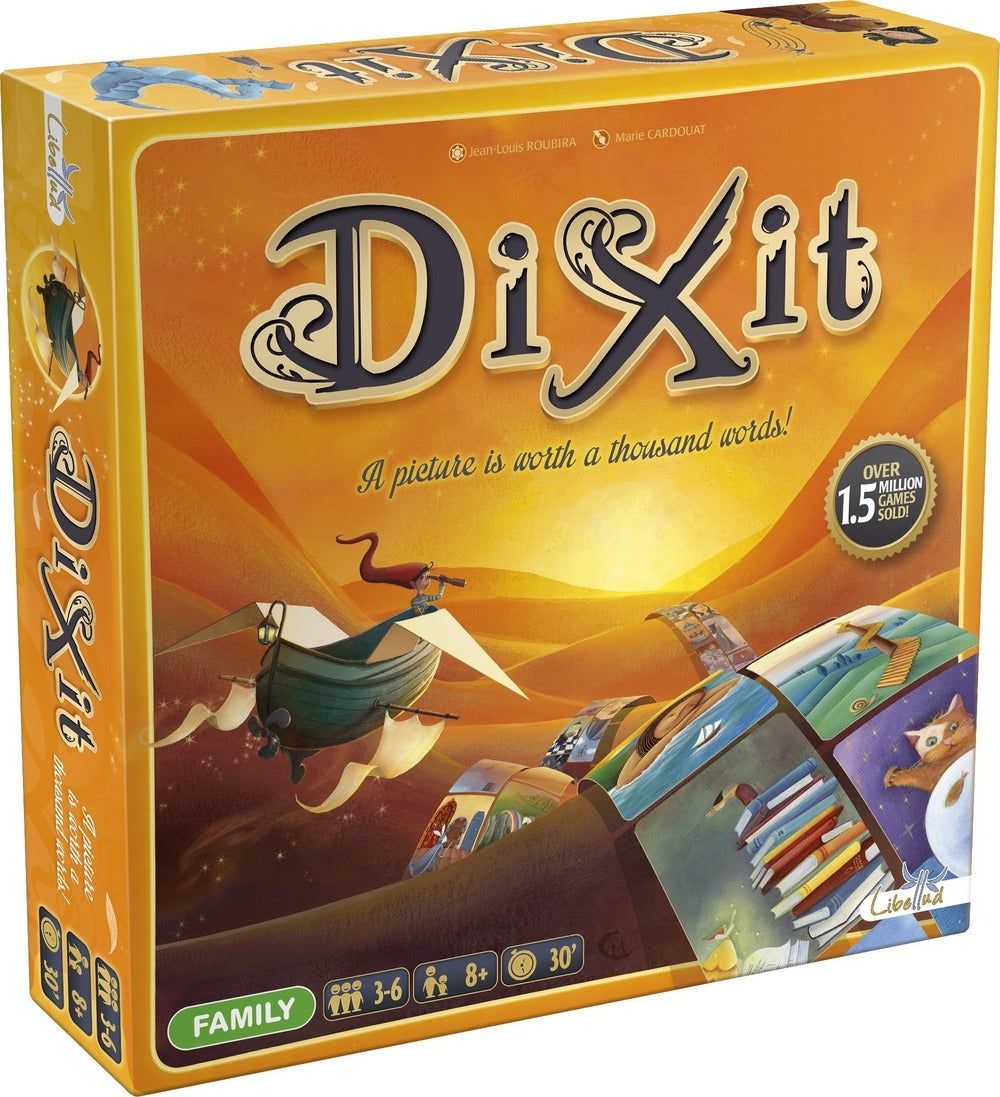
Dixit is essentially pre-illustrated Pictionary, but on acid. This is how Salvador Dalí would have played Pictionary. At the heart of it, Dixit is pretty simple. You privately assemble some cards from a deck, each featuring a random selection of surrealistic compositions. Each round one person provides a clue (a word or phrase associated with a card in their hand), and then puts that card face down on the table. Then other people choose a card that might also reasonably fit that clue from their own hand, and add those face down in the middle too. The face-down cards are shuffled and flipped, and people have to vote on whose card best fits the original clue.
Here’s the tricky bit: If you’re the person who provided the clue and no one picks your card, you don’t get any points. Nor do you get any points if everyone picks your card. The art is in conjuring image associations that are neither too obtuse or too obvious.
It helps if you know (or get to know) the people you’re playing with, because then you can use clues that refer to memories or experiences you only share with some of the crowd. Once, when playing with some friends, we descended into associative chaos by starting to use each other’s names as the clue, and just watching to see what person the group associated with, say, a man in a prison cell with a ball and chain around his ankle.
Upshot: A fun, accessible game that’s equally as hilarious with old friends as with your kids. A little learning is required to understand the not-too-obvious-but- not-too-random clue mechanic, but most people catch on.
Talisman
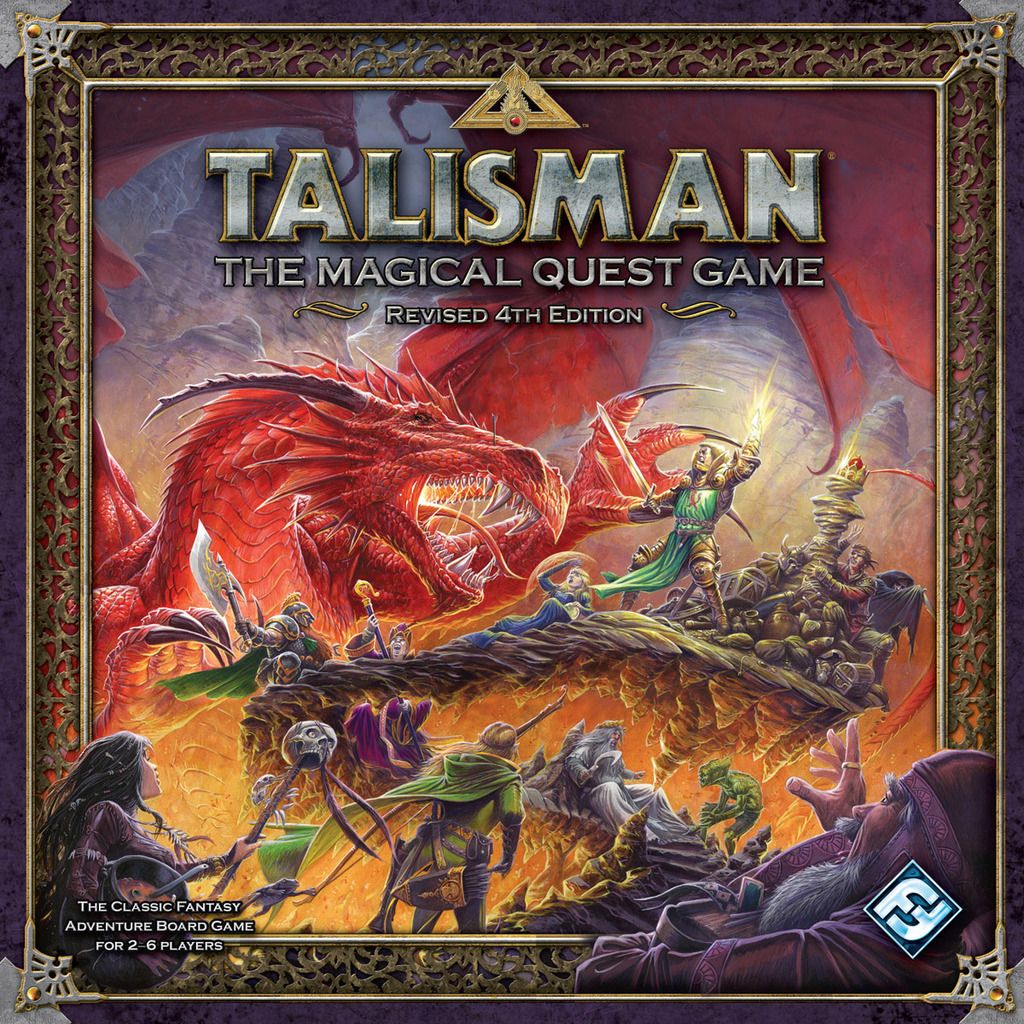
Talisman is really a game for aficionados, and I’ve really only included this last as an “anti pick” – while a small group of my gaming friends love to play Talisman, it’s really is not for everyone. The game is dense, complicated, and some would say willfully difficult to finish. Take note:
- There is some strategy but also an element of catastrophic chance – meaning you might have built up an incredible advantage over hours of patient play, only to lose it all in an instant, and basically need to start again, while other people rush in to grab your stuff.
- Games may end up taking all day, all night or just never end and you give up because eventually you have to go to work.
- Perfectly well behaved people who are generally patient may pack a sad and/or harbour feelings of resentment towards each other due to an action from (1) above.
Upshot: Really only for people who are already really into wizards, witches and elves – this is basically Monopoly for fantasy buffs. The complexity and randomness is its defining feature, maddening and invigorating at the same time. Expect fights.
Now go play some games
Support your local game shop, if you can. In Paraparaumu we’re lucky to have a particularly good one: Calico Keep.


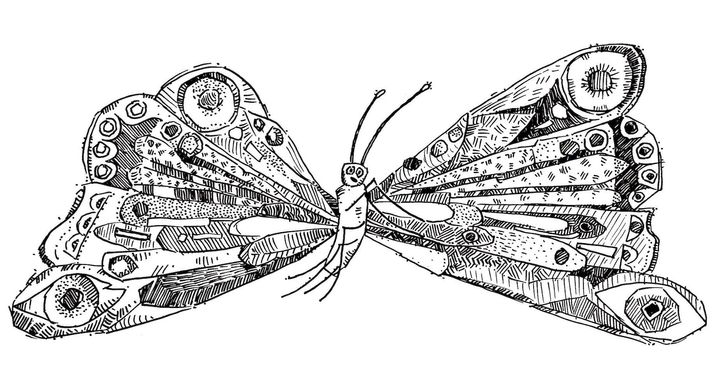
Comments ()